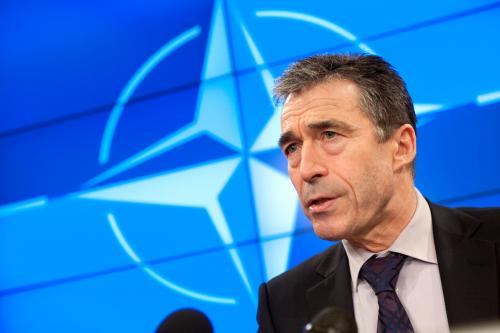
As NATO and its constituent states sort through the conflicting policy goals and logistics of the mission in Libya, some members of the Atlantic Council Strategic Advisors Group have offered some insights.
From Bob Kagan’s "Power and Paradise" to Bob Gates’ February 2010 speech bemoaning the "demilitarization of Europe," American defense experts have long derided and complained about a European unwillingness to invest in defense, properly share the burden of security cooperation, or support military intervention. Yet this latest intervention has turned that paradigm upside down. European leadership proved crucial to the passage of UN Resolution 1973 and the military action has gained far greater public support and attracted far less criticism in much of Europe than in the United States. However, Central Europe’s silence and passivity in the transatlantic debate over Libya has also been striking, not to mention Germany’s UN abstention and refusal to participate in operations. What explains the strong public support for European military action in Libya in many European capitals? Is this sustainable? Why has Europe shown this kind of leadership and support on the Libya question, but not on other security issues such as Afghanistan?
Ioan Mircea Pascu:
Libya indicates that, if all politics is local, all politics is internal, too, particularly in times of world crisis. If Bosnia in 1995, Kosovo in 1999 and Afghanistan in 2002-2003 were NATO actions based on a commonality of purpose, Libya, on the contrary, is based, paradoxically, on a variety of national interests not fully convergent.
As for the Central Europe’s “silence,” I think that it might be possibly motivated by a number of factors:
- Libya is a subject of interest to a limited number of western allies, not to the entire Alliance as such;
- The US are holding back; (it would be sadly ironical if the US, willing to provide leadership even when not all wanted it only a decade ago, would be reluctant to do so now, when many would feel the need for it)
- Libya is a contested issue; and
- Central Europe’s current internal problems leave little space for other than political support to prevent bringing the Alliance to a halt.
However, I do not think that Central Europe has lost its profound interest in NATO remaining a strong alliance providing for their collective defense. Therefore, I am sure that, if the current Libyan operation might affect negatively that interest, Central European allies will speak up.
Jean Paul Perruche: Libya is closer to the European Territory and instability in this country has direct consequence on migration and attitude of Islamic community in European countries.
Publics react first emotionally and support military action clearly oriented to defend disarmed civilian population against aggression led by their own governmental forces. Initial intervention in Afghanistan was very supported by public opinion in Europe; it is because the objectives of the military intervention became unclear after several years that this support gradually vanished.
Ioan Mircea Pascu is a Member of the European Parliament and former Romanian defense minister. Jean Paul Perruche is Research Director of IRSEM-Paris and former Director-General of the EU Military Staff.
Image: nato-libya-rasmussen.jpg
